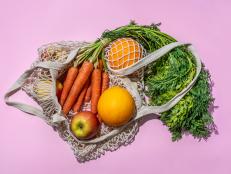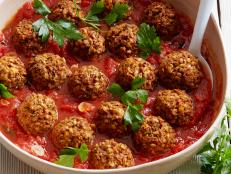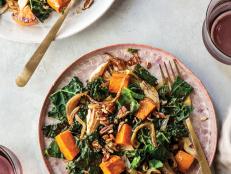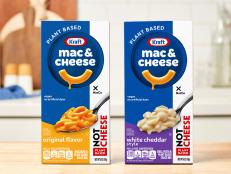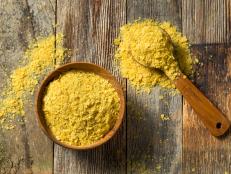How to Eat Enough Protein on a Mostly Plant-Based Diet
It's possible to get enough protein eating plants, but there are some things to take into consideration.

Anna Blazhuk/Getty Images
Plant-based diets are growing in popularity. But with their widespread appeal, there is a growing concern about how to get enough protein while eating plant based. While it’s true, plants do contain protein, it’s not always a one-to-one comparison with animal-based foods. That said, it is possible to eat a balanced diet with enough protein and amino acids without resorting to animal-based foods. If you’re plant-based and concerned about protein, here are six things to consider.
Know What You Need
Protein needs vary based on your weight and how often you exercise. The minimum amount of protein required for a healthy 150-pound adult is 55 grams per day. Growing kids, active adults, older adults and athletes may require more. Read labels and pay attention to the protein content of the foods you regularly consume. Tracking this info is a helpful way to assess your protein intake.
Seek Out Essential Amino Acids
Amino acids are the building blocks of proteins, and the body uses them to build muscle, support immunity and regulate metabolism. A group of nine amino acids are only found in protein-rich foods and getting ample amounts of these essential amino acids (EAAs) is of utmost importance on a plant-based diet. Most animal-based foods contain all the EAAs, but this is not the case for most plant-based foods (even those that contain higher amounts of protein). Gravitating towards a variety of plant-based foods is key to making sure you are getting enough EAAs.
Choose Nuts and Seeds
Nuts and seeds are often overlooked plant-based proteins. Pistachios are the nut highest in protein and seeds like chia and hemp can significantly contribute to protein needs when consumed regularly as part of a balanced diet.
Eat Protein at Most Meals
Avoid “protein-loading” at just one meal (most people eat their protein at dinner) and neglecting protein-rich foods the rest of the day. Since amino acids are not stored in the body for later use, it’s ideal to eat protein at every meal, if possible, so your body can benefit from amino acid consumption all day long.
Don’t Be Afraid of Soy
Soy gets a bad rap, but it’s one of the best plant-based sources of protein. It contains all nine EAAs, and extra tofu offers up about 4 grams of protein per ounce (one ounce of chicken breast contains about 7 grams). It’s also versatile, affordable and easy to find. Whether you choose tofu, edamame or soy-based products such as vegan meat alternatives, soy is a winner in the protein department.
Learn to Love Legumes
Beans, lentils, peas and peanuts are healthy legumes packed with plant-based protein. Eating a diet rich in grains and legumes can help ensure you are getting enough EAAs.
Dana Angelo White, MS, RD, ATC, is a registered dietitian, certified athletic trainer and owner of Dana White Nutrition, which specializes in culinary and sports nutrition.
*This article was written and/or reviewed by an independent registered dietitian nutritionist.
Related Links:

























